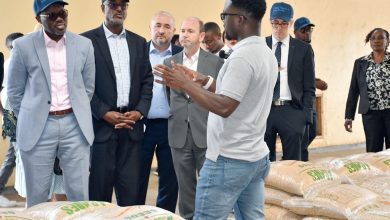Climate change haunts children
When Yankho Manda, 10, rose to speak during a children’s meeting in Ntchisi District, the crowd burst into laughter because his English was broken.
However, that is the language he chose to express his frustration with the challenges schoolchildren face in Traditional Authority (T/A)Kasakula.
The pupil wants sturdy blocks at Kanjoka Primary School where he and his classmates survived a violent storm that damaged their classrooms last year.
“The storm struck while we were learning,” he recalls. “Teachers said it was Cyclone Chido. It blew off all iron sheets, leaving us with nowhere to learn. How can one forget that?”

Yankho released his pent-up emotions on education authorities who appear to have forgotten the battered school.
It opened floodgates for learners from other primary and secondary schools to speak up.
Another schoolmate Gloria Zakalia, 17, lamented how chronic hunger forces many children to miss classes or quit school.
“Most boys and girls who started Form One with me in 2023 already have children because hunger and poverty pushed them out of school,” she says.
Gloria is being raised by her father who separated from her mother.
She feels lucky to have reached Form Four, sitting on the cusp of writing the Malawi School Certificate of Education examinations next year.
“I nearly married when a man from Lilongwe promised to end my problems, but I wanted to complete school at all cost,” she states.
Such tales mirror the agony faced by children amid worsening disasters caused by climate change
Last year, the World Food Programme of the United Nations reported that about nine million Malawians—almost half of the population—faced acute food insecurity. Of these, 4.2 million were classified at crisis level requiring food aid.
This year, five UN agencies reported that at least one in five people in Africa—about 307 million—were chronically undernourished in 2024. This represents an increase compared to 20 years ago.
For many families in Ntchisi, the crisis has been devastating.
Zakalia Kamoyo, from T/A Malenga, says chronic food insecurity severely affects his family which relies on subsistence farming.
Gloria lives from hand to mouth as her family, which cannot afford high-yielding seed and fertiliser, scarcely harvesting enough to feed themselves until the next harvest.
“We cannot afford the necessary farm inputs, so we grapple with hunger even though our area gets good rainfall,” she says.
Ntchisi district assistant forest officer Yamiko Midiani says dry spells keep disrupting crop harvests in the area where forests are disappearing fast.
T/A Malenga says climate change increases the number of girls marrying too young and teen mothers.
According to the Malawi Demographic and Health Survey, over a third of girls in the country either marry before their 18th birthday or become mothers before reaching 19.
Yet, the Malawi Constitution activates the UN stipulations that recognise every child’s right to live, grow and develop in a healthy and safe environment, with the support they need.
But hunger and poverty, fuelled by climate shocks, robs the Malawian child of education, health and safety.
Civil Society Network on Climate Change (Cisonecc) is running an initiative in Ntchisi to strengthen local communities’ capacities and amplify children’s voices on climate issues.
Cisonecc national coordinator Julius Ng’oma said the project sensitises communities to the UN General Comment No. 26.
It highlights the climate challenges faced by children while creating space to incorporate young people’s perspectives into local climate action and investment plans.
Speaking during the Ntchisi meeting, Ng’oma said it is pleasing that children are increasingly becoming more aware of climate change issues.
“This reflects the spirit of Articles 28 and 29 of the UN Convention on the Rights of the Child General Comment,” he said. “The concerns raised by children in Ntchisi mirror the agony of children across the country. Government and stakeholders need to act swiftly. Unless we take action now, climate change will continue to rob children of their future.”





